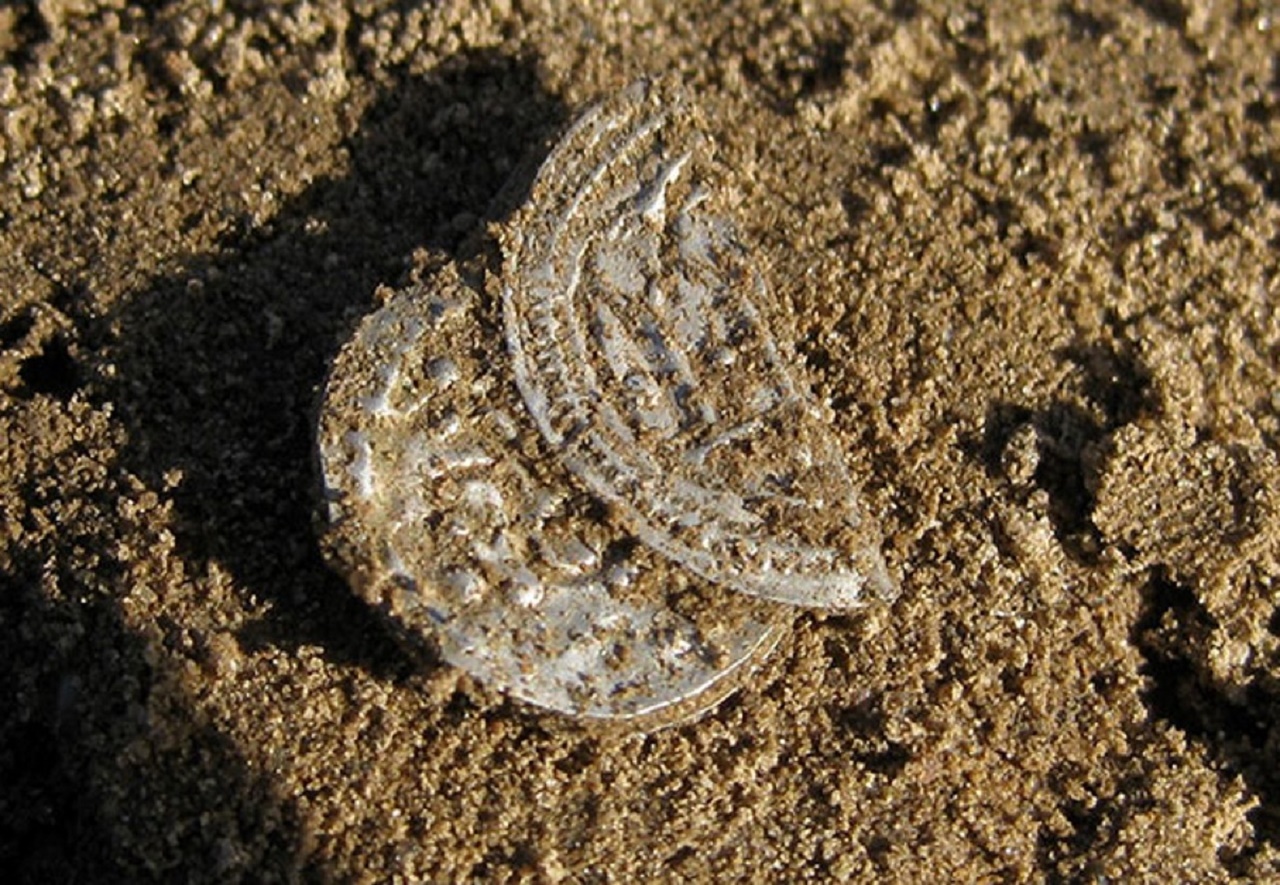
An amateur archaeologist recently made the discovery of coins and silver dating to the period of Harald Bluetooth reign in what is now Denmark.
Hidden Beneath Arable Land
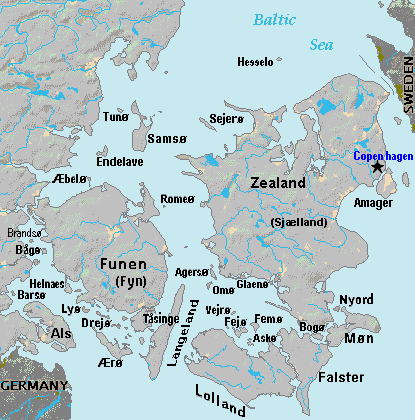
The treasure hoard consists of 550 silver coins and was found on the Danish island Omø south of Skælskør.
According to the local museum, the hoard was initially inside some sort of container but was now scattered over an area of about 25-30 meters in diameter. As several centuries of plowing the soil above have destroyed the vessel and scattered what was kept inside.
Amateur Archaeologist
Amateur archaeologist Robert Hemming Poulsen visited the island for a totally different purpose, to lay down fiber optic cables. But one day in September he took out his metal detector and began to search an area for potential historical findings. And so he made the discovery of several silver pieces and coins from Viking times which led him to suspect that the ground was hiding more relics from the past.
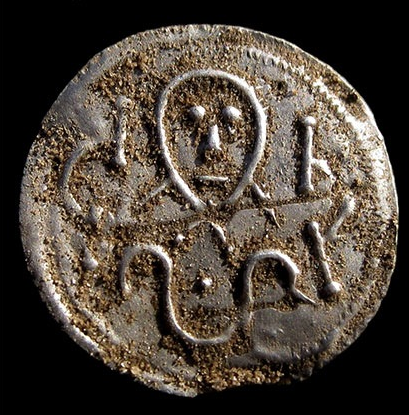
He called the local museum who sent several archaeologists to the island. Together they dug further into the ground and during the weekend of October 24-25th last year, they found no less than 550 pieces of silver coins, pure silver pieces and parts of silver jewelry.
Treasures from Far and Wide
The hoard includes coins from Harald Bluetooth minted between 974-983 AD, with the motive of a Christian cross. Harald Bluetooth probably chose this particular symbol to prove that he as the first king had converted to Christianity.
The hoard also contains a wide range of objects from different countries. The archaeologists found small cuttings of Arabic coins, some Danish coins, and coins from kingdoms throughout Europe, from England, what is now Germany, Poland, and the Czech Republic. Silver jewelry in the form of bracelets and rings.
Bluetooth
![Christ is depicted as standing in the shape of a cross and entangled in what appear to be branches.[6] One scholar has suggested that this imagery was used to suggest that Christ had replaced the Norse pagan god Odin, who in one myth hung for nine nights in the tree Yggdrasill. Credit: The National Museum of Denmark.](http://www.illustratedcuriosity.com/files/media/30566/9084035770.jpg)
The Jelling stones are massive carved runestones from the 10th century. The older of the two Jelling stones was raised by Harald’s dad, King Gorm the Old, in memory of his wife Thyra. The larger of the two stones (seen to the right) was raised by Harald Bluetooth in memory of his parents, celebrating his conquest of Denmark and Norway, and his conversion of the Danes to Christianity, it is featured in the passport of every Dane today.
______________
Stor sølvskat fra Svend Tveskægs tid fundet på Omøs Enghavegård
____________________________





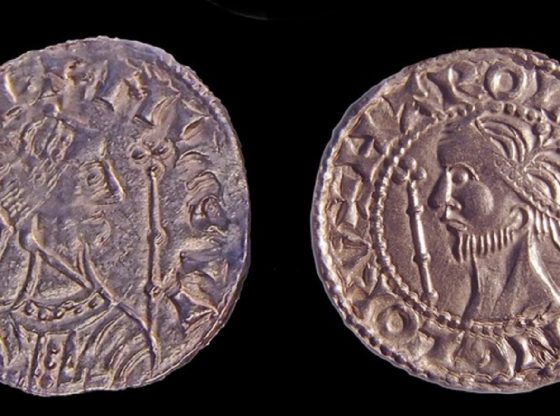

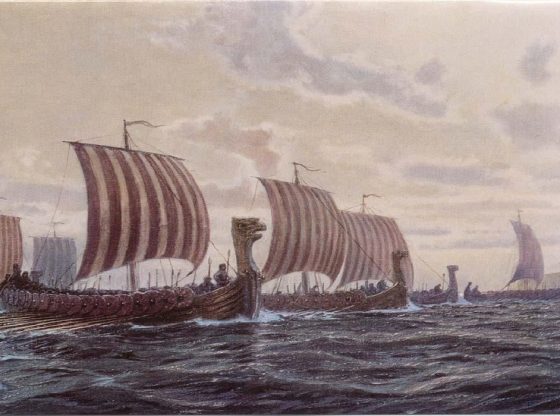
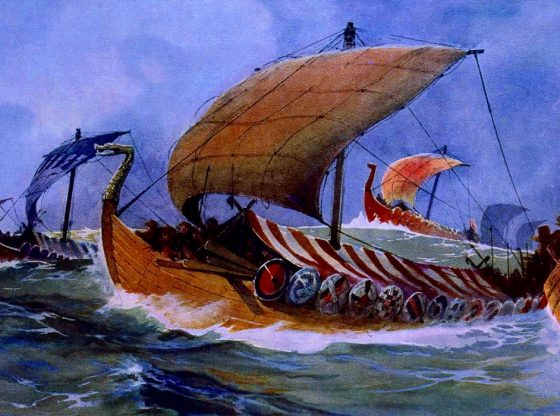
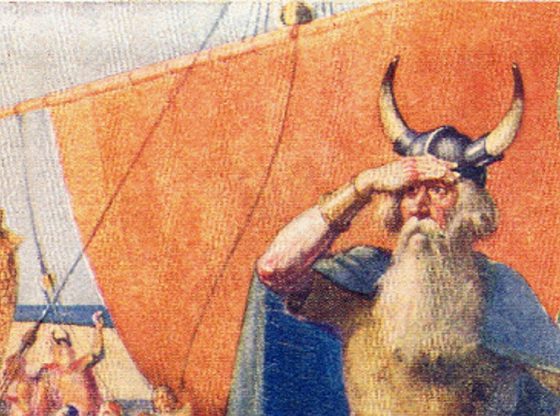

![OpenAI. (2025). ChatGPT [Large language model]. https://chatgpt.com](https://www.illustratedcuriosity.com/files/media/55136/b1b0b614-5b72-486c-901d-ff244549d67a-350x260.webp)
![OpenAI. (2025). ChatGPT [Large language model]. https://chatgpt.com](https://www.illustratedcuriosity.com/files/media/55124/79bc18fa-f616-4951-856f-cc724ad5d497-350x260.webp)
![OpenAI. (2025). ChatGPT [Large language model]. https://chatgpt.com](https://www.illustratedcuriosity.com/files/media/55099/2638a982-b4de-4913-8a1c-1479df352bf3-350x260.webp)








